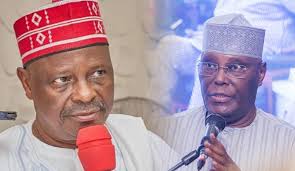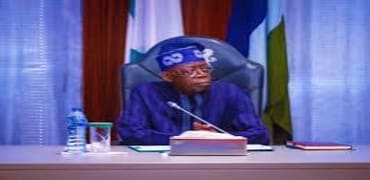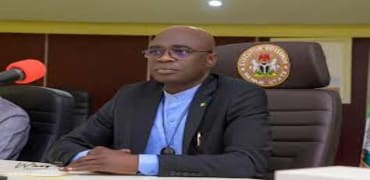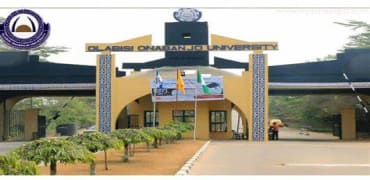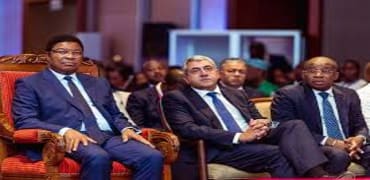After Buhari: Atiku and Kwankwaso Jostle for Northern Political Crown in Post-Buhari Era
After Buhari: Atiku and Kwankwaso Jostle for Northern Political Crown in Post-Buhari Era
With the passing of former President Muhammadu Buhari on July 13, 2025, Nigeria’s northern political landscape has entered a period of quiet turmoil—and growing anticipation. While tributes continue to pour in for the late statesman, conversations across the region are shifting toward a more contentious question: Who will inherit Buhari’s political mantle in the North?
In the vacuum left by the Daura-born general—who dominated Northern politics for over two decades—the names on everyone’s lips are Atiku Abubakar, former Vice President, and Rabiu Musa Kwankwaso, former Kano governor and leader of the Kwankwasiyya Movement.
Buhari’s Legacy and the Search for a Successor
Buhari's rise in northern politics was driven not by personal ambition, but by public demand. His austere image, military credentials, and reputation for integrity made him the embodiment of hope for millions of Northern voters. From storming warehouses to break food hoarding in the 1980s to promising to cleanse Nigeria of corruption, Buhari built a cult-like following—especially among the poor and religious.
However, many argue that his failure to groom a political successor, or even a recognizable ideological heir, has left the North adrift. As Anthony Sani of the Arewa Consultative Forum put it, “Buhari’s brand was built on integrity, simplicity, and vision for the people—qualities hard to replicate in today’s political class.”
Atiku: The Veteran with Reach
To many political observers, Atiku Abubakar appears to be the frontrunner to fill the void. As a former Vice President with a pan-Nigerian structure, Atiku has the advantage of national visibility, deep financial resources, and longstanding political machinery across the North.
Supporters argue that Atiku has remained a central figure in national politics for over two decades and, unlike many politicians, has kept his network alive between elections.
"Atiku is everywhere in the North. He has experience, reach, and the political scars to prove his resilience," said Alwalu Ibrahim, PDP Secretary in Kano State. “Kwankwaso, by comparison, is loud in Kano but relatively quiet across the rest of the North.”
Indeed, the 2023 presidential election results back this up: Atiku placed second nationally, while Kwankwaso’s support was largely concentrated in Kano. In other Northern states—Katsina, Kebbi, Jigawa—his numbers dwindled drastically.
Critics of Atiku, however, argue that he lacks grassroots credibility. “He is seen by many as elitist, transactional, and driven more by personal ambition than regional or national ideology,” one northern analyst noted. “Buhari stood for something. Atiku, to many, just wants power.”
Kwankwaso: The Masses’ Mobilizer?
On the other end of the debate is Rabiu Kwankwaso, a fiery grassroots politician known for his street credibility and loyal base—the Kwankwasiyya Movement. While his political stronghold remains in Kano, his brand of populist politics and vocal defense of Northern interests has earned him fans across the region.
During a recent constitutional dialogue in Kano, Kwankwaso lashed out at the federal government for allegedly neglecting Northern infrastructure while prioritizing the South. His blunt remarks resonated with many in the region.
“He is one of the few who will speak truth to power, regardless of who’s in charge,” a supporter said. “That courage gives him Buhari-like appeal among the Northern poor.”
Still, doubts persist. Critics argue that Kwankwaso’s abrasive style and political isolationism limit his ability to build coalitions or command cross-regional respect. “He’s respected in Kano, no doubt,” said a political analyst in Kaduna, “but beyond that, his influence fades.”
Tinubu’s Courtship of Kwankwaso
The conversation has taken a new twist with recent meetings between Kwankwaso and President Bola Tinubu. Rumors of a possible alliance—or even a vice-presidential ticket in 2027—have intensified.
Though Kwankwaso’s camp has denied plans to defect to the APC, many believe Tinubu is actively courting him to secure Kano’s vital electoral block. Speculations grew after the sudden resignation of the APC national chairman, Kwankwaso’s former ally in Kano, on June 27.
If a deal is struck, it could radically reshape the 2027 presidential race and cement Kwankwaso’s relevance far beyond his current reach.
Atiku vs. Kwankwaso: Who Will the North Choose?
At the heart of this unfolding political drama lies a fundamental question: What does the North want post-Buhari? A leader with institutional reach and political maturity—or one with mass appeal and populist fire?
While Atiku offers structure, experience, and continuity, Kwankwaso brings emotion, defiance, and grassroots energy. Both are flawed, neither is guaranteed. But in the North’s quest for its next political compass, one will likely emerge to fill Buhari’s giant shoes—or split the base enough for a new contender to rise.
What’s clear, though, is that Buhari’s death has ended an era. What comes next could define Northern Nigeria’s political identity for years to come.
By Haruna Yakubu Haruna



